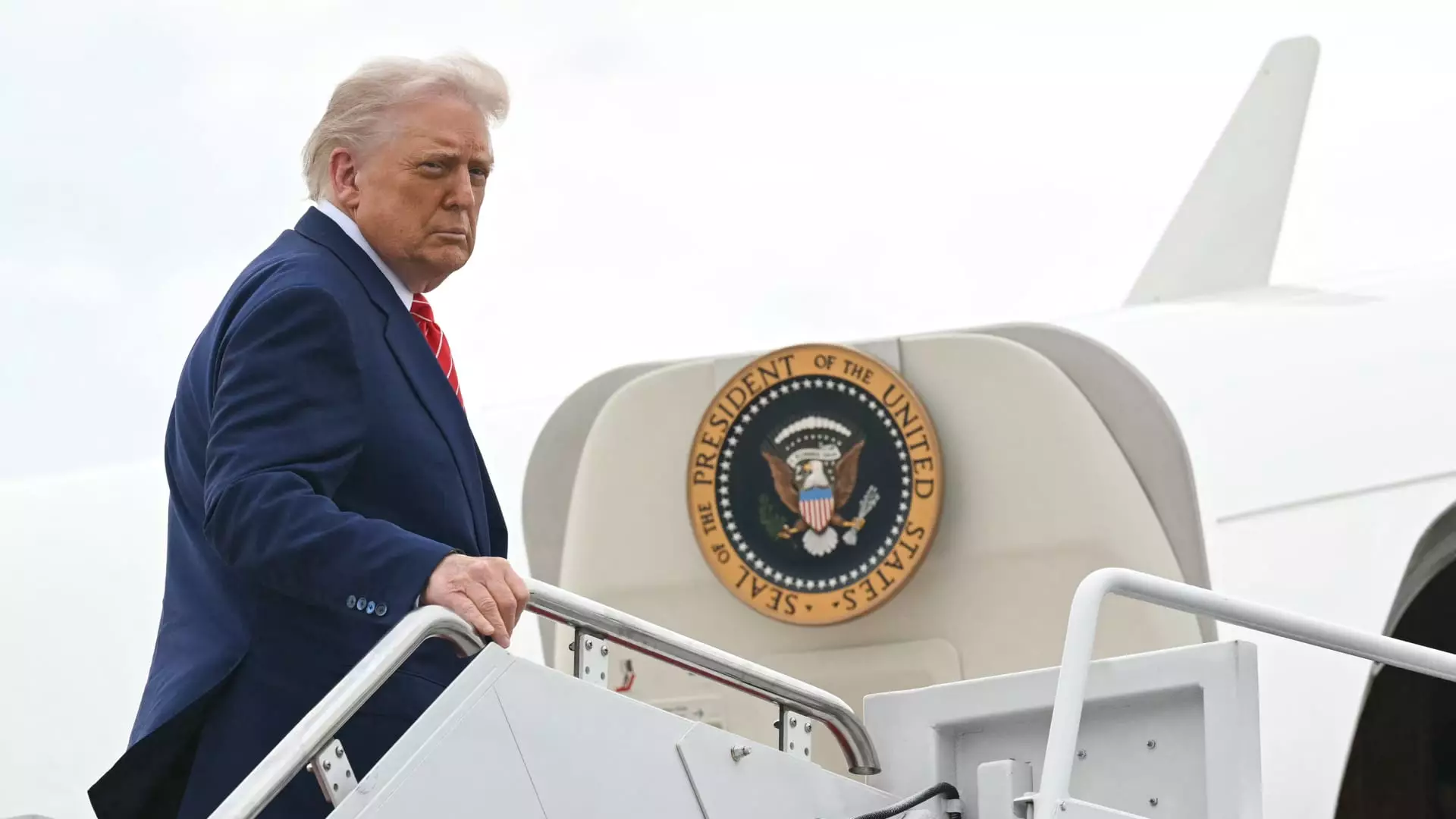President Donald Trump’s administration has made a bold proclamation regarding tariffs: they’re here to stay, despite the legal turmoil that swirls ominously around them. Commerce Secretary Howard Lutnick’s insistence on “rest assured, tariffs are not going away,” can be interpreted as a mix of bravado and desperation. It reflects a broader strategy that hinges not only on the legal viability of these tariffs but also on the prevailing fear of economic repercussions that may arise if they were to be rolled back. In a time when economic policy seems as fractured as the political landscape that birthed it, such declarations may be meant to reassure both allies and the American public, yet they also raise alarms about the delusions of confidence when the judicial system could render all these plans obsolete.
The complicated judicial situation gives a glimpse of the unpredictability of Trump’s policies. The federal court’s ruling against him came as a shock to many, questioning the extent of presidential authority regarding international trade practices under the International Emergency Economic Powers Act. The temporary stay granted by a federal appeals court might seem like a lifeline, but it only postpones the inevitable confrontation between Trump’s administration and the legal system—a showdown full of potential repercussions. The problem is not merely legal; the ramifications of these tariffs have already shaken the global economy, making it apparent that this isn’t just political theater.
The Fragility of Economic Insecurity
Trump’s tariffs were rooted in the belief that an ongoing trade deficit represents a “national emergency,” but this assertion is emblematic of a broader misunderstanding of global trade and its implications. While the administration’s advocates, like National Economic Council Director Kevin Hassett, express confidence in the possibility that the Supreme Court will uphold these tariffs, one must question whether this legal certainty can actually translate into economic stability. Hassett’s ambiguous comments about alternative methods to pursue tariffs add a layer of mystery to an already complex situation, suggesting a lack of clear planning. It’s a classic case of ‘we’ll figure it out as we go,’ which is altogether too risky given the stakes involved.
The fundamental issue lies in the perception of trade as a zero-sum game. The blanket application of tariffs does not merely protect American industries; it threatens to provoke retaliation from trading partners, jeopardizing years of diplomatic relationships and opening the floodgates for retaliatory tariffs that could have debilitating effects on American consumers and businesses alike. The Donald Trump administration may be willing to gamble on legal maneuvers, but the stakes are much higher than they seem.
Judicial Independence vs. Executive Power
Trump’s tweets and proclamations hint at a deeper anxiety about the judiciary’s role in determining the limits of executive power. He has lamented that a ruling against his tariffs would render America vulnerable to foreign manipulation, framing the issue as one of national security rather than economic policy. This narrative is troubling for a myriad of reasons, not least how it undermines the judicial independence that is essential in a functioning democracy. It’s as if Trump intends to pressure the courts into submission, promoting a narrative that conflates legal evaluation with disloyalty to the nation.
Despite the conservative majority in the Supreme Court, it’s nonsensical to assume that every decision will invariably align with the administration’s agenda. The issue at hand—executive authority over economic regulation—demands careful scrutiny and balanced judgement, regardless of the political affiliations or motivations of the judges involved. The reality is that judicial checks exist for a reason; they serve to prevent overreach and protect the balance of power, a principle that is foundational to American governance.
The Broader Implications of Tariff Policies
Ultimately, the battle over tariffs is not solely about the economic instruments themselves but also reflects a larger ideological struggle concerning the nature of American identity and its role in the global economy. Policies that lean towards protectionism could lead to insidious effects on domestic businesses that rely on global supply chains. The myth that America can thrive in isolation—shielded by tariffs—ignores the interconnectedness of modern economies and the innovation that emerges when cultures and markets collide.
It remains to be seen how this legal tug-of-war will play out, but the reality is that reliance on aggressive economic policies rooted in unilateralism can do more harm than good. Tariff policies, while framed as empowering, could well misfire, further entrenching divisions in a polarized nation—and ultimately causing greater loss than gain.


Leave a Reply